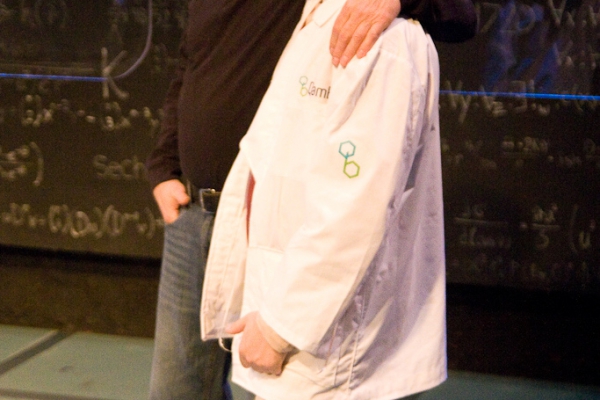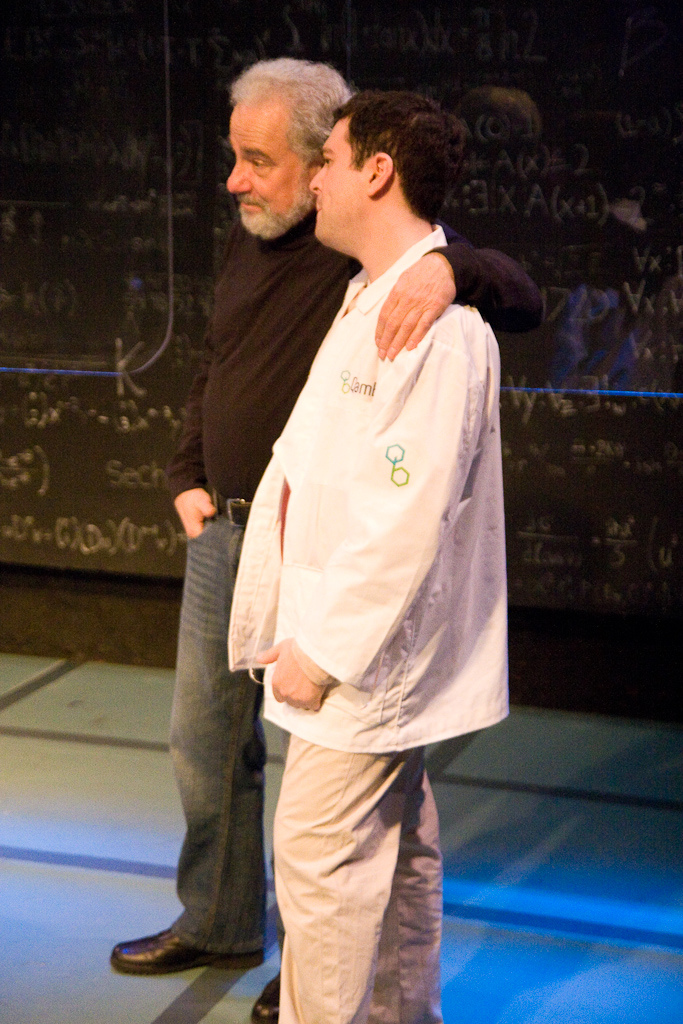DEINDE Review: That Sounds Cool, Aaron Riccio

Our first review is out! Aaron Riccio, whose voice we missed at Menders, is back (and happily reviewing at full steam again – recent months had seen his essential site, That Sounds Cool, on a bit of a seeming slow down).
I would say it is mostly positive, with the cast and design team winning deserved praise. I’m especially pleased that Isaiah Tanenbaum is singled out for doing what think is some of his best work ever, and that Ken Glickfeld is given credit for the “real grace” he brings to the challenges of the role.
He has two main critiques: one, that the subplots are less interesting than the main; and two, that within the main plot, there is too much repetition.
To respond to the first point, I think there is a case to be made that neither Malcolm or Mac are the protagonists of the play. If one became the protagonist over the other, then the sympathy of the play might lean towards one point of view and diminish the overall moral complexity. If neither M is the protagonist, does that role fall to someone else?
An argument could be made for Jenni, but I think it could be Nabanita, who ends both the acts, and who attempts to balance all the competing human concerns throughout the play. If that is the case, I’d hope that her relationship to Cooper isn’t extraneous but essential, and Dara’s relationship to Cooper becomes likewise more important.
But…I could be wrong. What do you think? Should the play streamline towards the Mac/Malcolm conflict?
To the second point, I plead guilty as charged. The pleasure in listening to a character think and be changed in the moment by the process of their thought is a signature joy of mine, the perhaps unfortunate by-product of being over-immersed in Shakespeare. Each character has a unique pattern of thinking, and rhythm to being changed by their thought, and I delight almost endlessly in discovering their discoveries.
Sometimes I imagine plot and character as space and time, bound together as one dramatic fabric, but just as the faster you move through space, the slower you move through time, so, too, for the dramatic universe. Stories that move very quickly through plot are called melodrama , farce, thriller, or action; stories that move deeply through character are called comedy or tragedy. We don’t need Brutus to think through the murder of Caesar for the plot to shock; but it deepens the impact of e tu, Brute. Moving more through plot increases speed, but the without the mass of character, the impact is diminished; moving too deeply through character, however, can lose the name of action.
Clearly, my direction through the dramatic fabric angles more towards character than plot, and that may indeed be a recurring flaw in my work. On the bright side, however, it did lead Aaron to coin “putting the ‘try’ in that poetry”, which is a phrase worth re-turning.
What do you think?
(Pictured: Ken Glickfeld, Isaiah Tanenbaum. Photo: Justin Hoch -jhoch.com)





Recent Comments